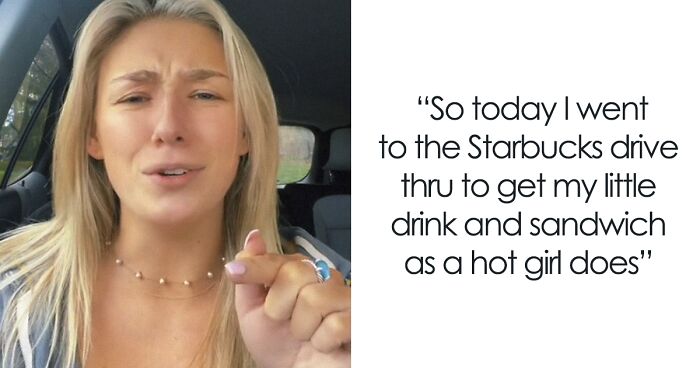
Woman Breaks A Starbucks ‘Pay It Forward’ Streak And Explains Why She’s Refusing To Be Shamed For It
What is the point of a kind gesture if it’s never cashed out? This is a question content creator Grace Johanna put forth in one of her TikToks.
Filming herself in her car, Grace shared how a seemingly routine visit to a Starbucks ended in a discussion on morality.
Everything began when she got caught in a pay-it-forward streak, in which, according to the woman, the previous five customers were shamed into compliance instead of enjoying themselves a treat.
Meet Grace Johanna, a content creator who broke a pay-it-forward streak in a Starbucks because, well, that’s the point of it
Image credits: gracejohanna
However, not everyone was a fan of her decision, so the woman explained her reasoning behind it in a TikTok video
Image credits: Kadarius Seegars (not the actual photo)
Image credits: gracejohanna
Image credits: gracejohanna
We contacted Grace to have a little chat about the whole thing and she was kind enough to reply. “I didn’t feel any pressure [from the employee to continue the pay-it-forward streak], the workers at my local Starbucks are super nice,” Grace told Bored Panda. “I think the barista was just stating a fact that 5 people in front of me kept paying it back as a ‘look how nice people are’ and I was like, ‘That’s so sweet but I need this.’ I was having a bad day!”
The content creator said people online have shamed her a ton about not paying it forward after she uploaded the video, but she genuinely doesn’t understand where they are coming from. “A lot of people say I didn’t deserve it, but who are they to say I didn’t deserve something free? If I didn’t deserve a free drink, I wouldn’t have received it. I think people who have an issue with the video aren’t thinking much far past the current moment and how it ethically makes no sense.”
The phrase “pay it forward” was popularized by Catherine Ryan Hyde in her 1999 novel of the same name (which was later also turned into a movie).
And these are not just empty words. Social scientists have conducted research demonstrating that the effect of a single act of kindness can ripple through a social network, setting off chains of generosity that reach far beyond the original action. However, whether it’s enough to merely witness a generous act, rather than actually benefit from one, has been an open question.
In an experiment called ‘The social contagion of generosity’, sociologists Milena Tsvetkova and Michael W Macy studied both possibilities.
“We found that receiving and observing generosity can both significantly increase your likelihood of being generous toward a stranger, but that if you observe a high enough level of generosity, your willingness to help suffers — you become a ‘bystander’ who feels that help is no longer needed,” the authors of the study wrote in The New York Times.
For their experiment, Tsvetkova and Macy recruited more than 600 participants from Amazon’s Mechanical Turk, an online marketplace where users advertise tasks to be completed in exchange for money. They had to play what the researchers called the Invitation Game. The people were informed that they could participate in the game and earn a base payment in cash and a cash bonus — but only if they received an email invitation.
“To get the game started, we created a few invitations that we sent to randomly chosen participants. Those who received invitations were then informed that they had been assigned to play the game in a group of 150 people,” Tsvetkova and Macy explained. “Each ‘invitee’ had the opportunity to create one additional invitation for a stranger in his group if he gave back the bonus and earned only the base payment. That invitation would be sent anonymously to the stranger.”
The clip has been viewed over 1.4 million times
@gracejohanna What would you do in this situation? #starbucks#kindgesture#fyp#storytime♬ original sound – gracejohanna
“Participants were randomly assigned to one of four situations: receiving help (they got an anonymously donated invitation created by another participant); observing help (they witnessed other participants anonymously donating invitations); receiving and observing help; and neither. (In the ‘neither’ condition, participants received their invitation directly from the experimenters, which established a baseline condition against which to compare what happened when participants received or observed help, or both.) Then we observed how the participants chose to act in each situation.”
The bad news was that the willingness to help suffered from what social psychologists call ‘the bystander effect’.
“When participants observed a low level of helping, it increased their own likelihood of helping; but when they observed a high level of helping, they did not themselves help — they appeared to feel that their own sacrifice was no longer needed. This finding was consistent with many previous studies of ‘social loafing,’ ‘free riding’ and ‘diffusion of responsibility,'” Tsvetkova and Macy said.
But the good news was that receiving help increased the likelihood of being generous toward a stranger. Plus, the participants who benefited from generosity were also less susceptible to the bystander effect when they themselves observed high levels of helping in their group.
“We conclude that observing an act of kindness is likely to play an important role in setting a cascade of generosity in motion, since many people can potentially observe a single act of helping. But we found that it was receiving help that sustained the cascade as it spread through the group.”
So what goes around does come around. But if there’s no ‘recipient’, the act would just get stuck in a continuous limbo where nobody would benefit from it.
“I think some people feel shame accepting help from others because they feel this societal pressure to not look like a ‘taker,'” Grace added. “I think it’s an American thing, we have a hard time accepting help.”
“Accepting the coffee is almost like a submissive thing, and instead of basking in the kindness of others, they are quick to pay it back to get the rush of ‘doing a good deed,’ but how can a good deed be done if people put their ego aside and let it happen to them? That’s why I said, ‘I was the one who was helped.'”
And sparked an interesting discussion on ethics and herd mentality
Why is the barista telling the woman how long the streak's been going? Like, why should that matter at all?? He's guilting her into doing something that doesn't even benefit him or the shop. Like many others are saying above, just tip the guy well and move on.
I came down to the comments to say this. The Starbucks guy, whether he knew it or not, was trying to shame her. If people want to immediately pay it forward, they can, but the barista shouldn't suggest that they do.
Load More Replies...I'm not the one to get caught in those...if people are in line for Starbucks or McDonalds then they can afford to get their own. But what I do actually do is pay for someone who needs that little uplift. If I see a homeless or struggling person I will buy them breakfast even if all I wanted was a coffee and hand it to them before I go upon my day.
This "pay it forward" stuff at Starbucks doesn't make any sense. For one, people go to Starbucks because they can afford it, so no one is really being helped. Plus, all you're really doing is "shifting" the bill down the line. It's all a big show.
Not everyone can afford it. I was a young mother when I got caught in one of those lines. I definitely couldn't afford it. I was using a gift card my boss had given me. My $7 coffee cost me my $20 gift card and then even more money on top of it. When I hadn't planned on spending any:(
Load More Replies...Why is the barista telling the woman how long the streak's been going? Like, why should that matter at all?? He's guilting her into doing something that doesn't even benefit him or the shop. Like many others are saying above, just tip the guy well and move on.
I came down to the comments to say this. The Starbucks guy, whether he knew it or not, was trying to shame her. If people want to immediately pay it forward, they can, but the barista shouldn't suggest that they do.
Load More Replies...I'm not the one to get caught in those...if people are in line for Starbucks or McDonalds then they can afford to get their own. But what I do actually do is pay for someone who needs that little uplift. If I see a homeless or struggling person I will buy them breakfast even if all I wanted was a coffee and hand it to them before I go upon my day.
This "pay it forward" stuff at Starbucks doesn't make any sense. For one, people go to Starbucks because they can afford it, so no one is really being helped. Plus, all you're really doing is "shifting" the bill down the line. It's all a big show.
Not everyone can afford it. I was a young mother when I got caught in one of those lines. I definitely couldn't afford it. I was using a gift card my boss had given me. My $7 coffee cost me my $20 gift card and then even more money on top of it. When I hadn't planned on spending any:(
Load More Replies...
 Dark Mode
Dark Mode 

 No fees, cancel anytime
No fees, cancel anytime 


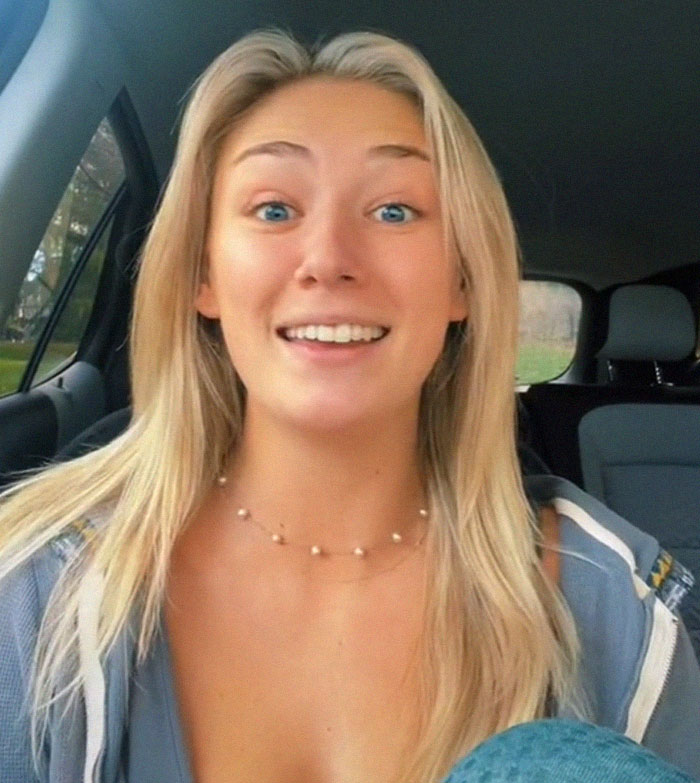
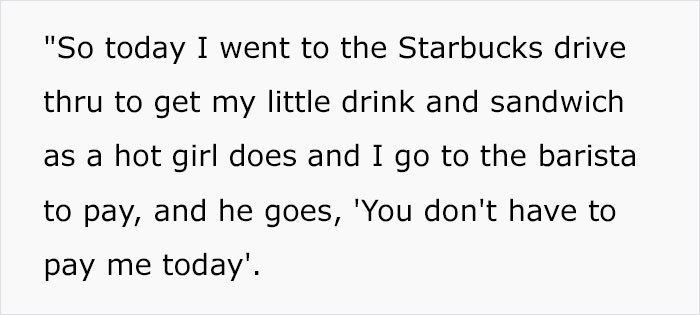


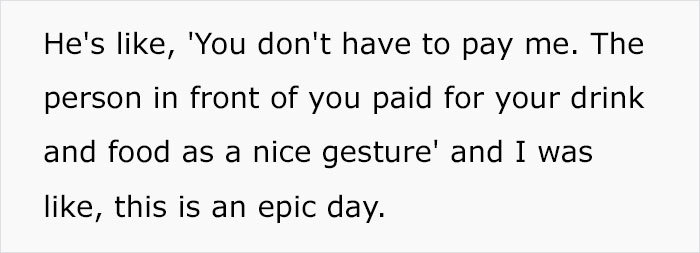
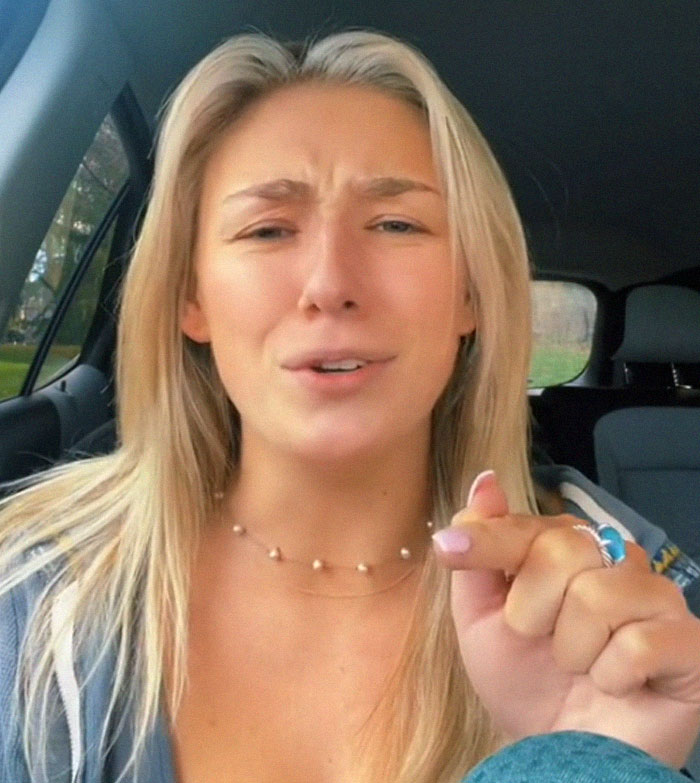

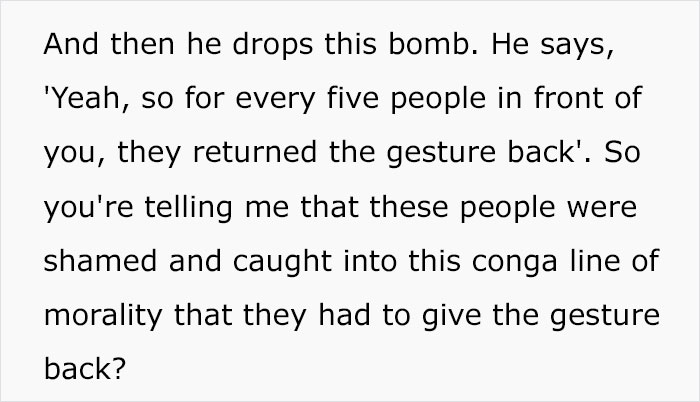

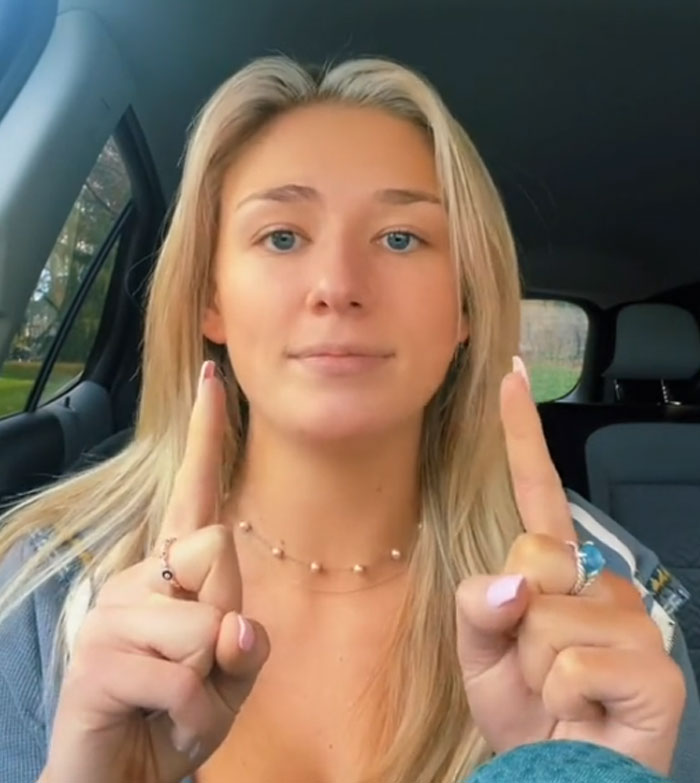
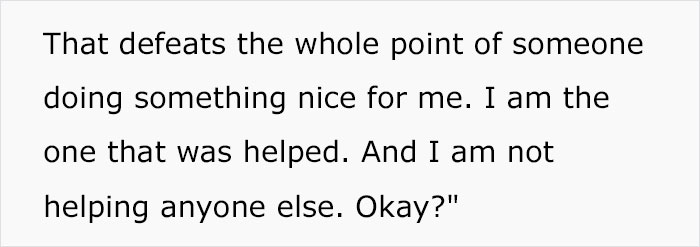







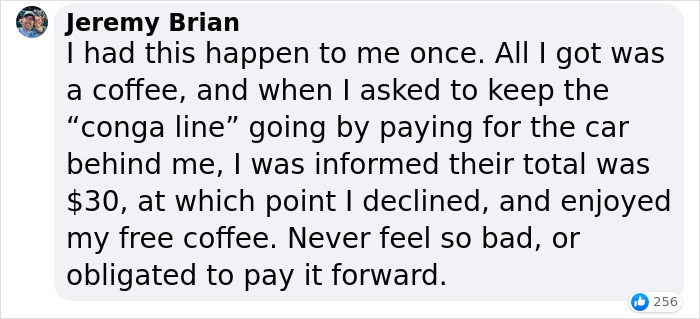


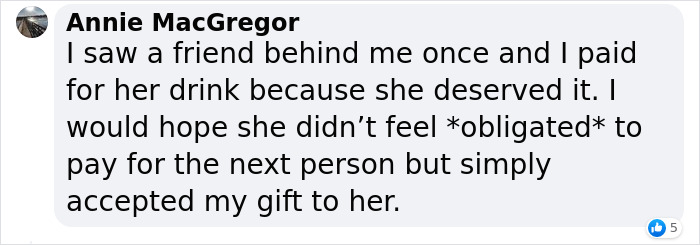















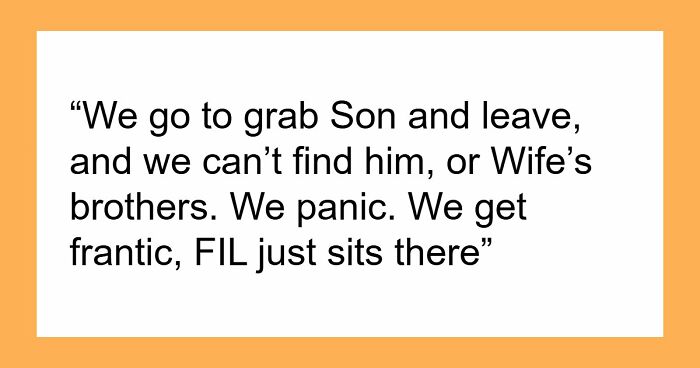

























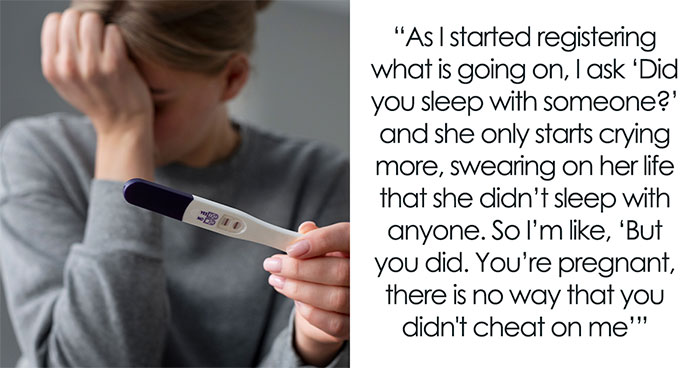



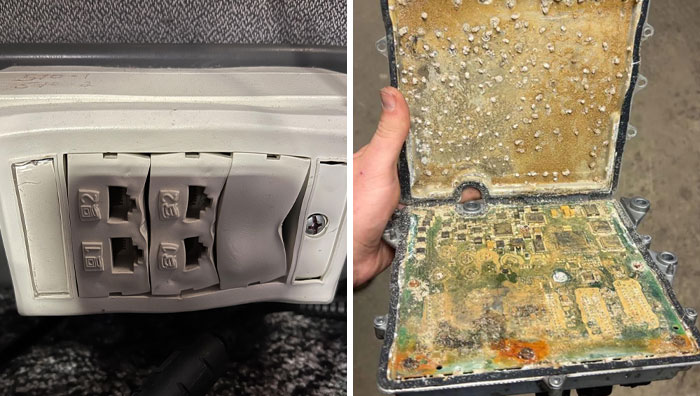
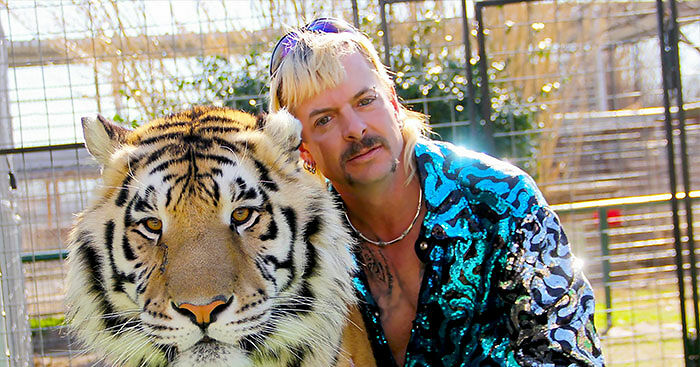
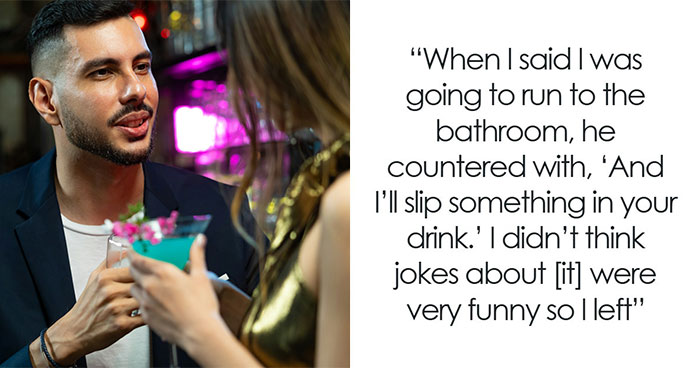
40
77